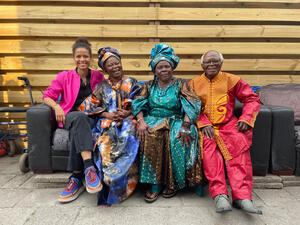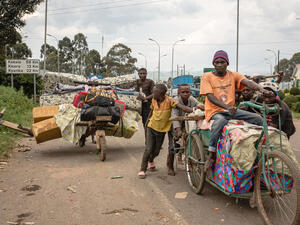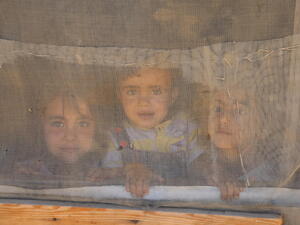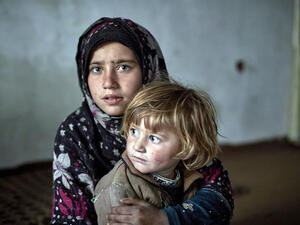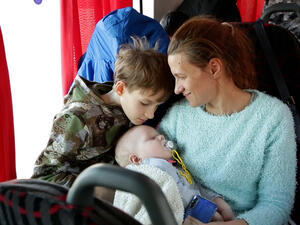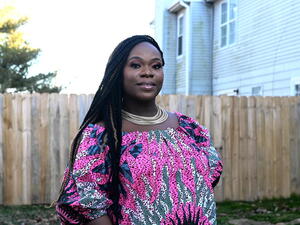Number of Iraqis recommended by UNHCR for resettlement hits 50,000
Number of Iraqis recommended by UNHCR for resettlement hits 50,000
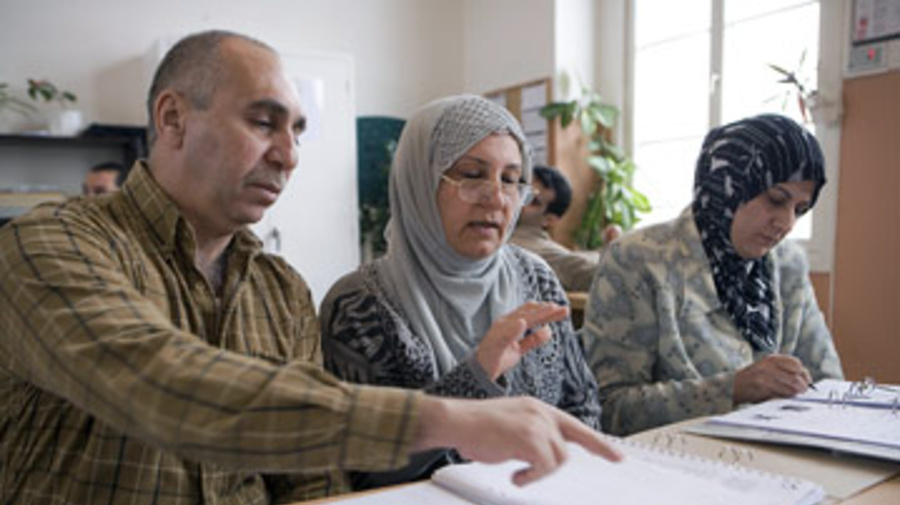
Resettlement Milestone: Iraqi refugees take Swedish language classes in the town of Flen.
ALEPPO, Syria, December 12 (UNHCR) - The UN refugee agency reached a milestone late last month when a former Baghdad resident became the 50,000th Iraqi refugee submitted for resettlement from host countries in the Middle East.
UNHCR has not been bragging about the statistic, which has resulted from the violence and persecution that has forced hundreds of thousands of people to flee Iraq in recent years. But Mohamed* was thrilled when he was given the news that he and his family had been recommended for resettlement in Sweden. "I felt that our suffering had been acknowledged, and that was important to me," he told UNHCR staff in the northern Syrian city of Aleppo.
The resettlement programme, covering refugees in Egypt, the Gulf states, Iran, Jordan, Lebanon, Syria, Turkey and Yemen, began last year when it became apparent that some people would never be able to return to their homeland and could not, or would not, remain in host countries.
With 21,312 submissions in 2007 and 29,684 from January to the end of November this year, UNHCR hopes the most vulnerable Iraqi refugees will continue to be given an opportunity to rebuild their lives in third countries.
Laurens Jolles, the UNHCR representative in Syria, which hosts the largest refugee population from Iraq, said the agency had worked hard over the past year to give the most vulnerable Iraqis an opportunity to rebuild their lives in a new home. "It is vital for resettlement countries to allow them to start anew as quickly as possible," he added.
When a submission is accepted by the country of resettlement, it is usually only a matter of time before the refugee departs. Last year, less than 5,000 Iraqis moved to their new home countries, but the pace picked up in 2008. More than 17,400 have left their host countries for resettlement since January, mostly to the United States but also to Canada, Australia, Sweden and other European countries.
While those offered resettlement are almost always happy, many feel trepidation and apprehension about starting a new life in a strange country. And there are a few who want to remain close to their homeland and feel torn about whether or not to accept.
Reem* is one such refugee in Syria. She fled to Damascus with her two-year-old daughter after her husband and another infant daughter were abducted by masked men in Baghdad. She has paid US$3,000 trying to find out what happened to them but, after 18 months, she is none the wiser.
In the meantime, she applied for resettlement and recently found out that she and her daughter had been accepted by the United States. But now, anxious to offer her daughter a decent life yet torn by guilt that she would be abandoning her husband and other daughter if she leaves, she can't decide what to do.
She spends her days dwelling on the past, while her nights are full of horrible dreams. "Sometimes I wish the monsters that did this to my little baby and my husband would call me to tell me they are both dead so that I could leave. I'm so tired, so very tired of hoping," she confided.
Reem has asked the US authorities for more time, but she must make a decision by early next week or she will lose the right to resettlement. It's an awful dilemma that comes on top of a life scarred by the Iraqi tragedy.
Mohamed, meanwhile, has plans for his new life in Sweden. He hopes to teach and to work as a volunteer for charity organizations. "I was a volunteer for 36 years in Iraq. It had nothing to do with religion or politics, it was about citizens helping each other and that is what I believe in."
* Names changed for protection reasons.
By Carole Lalève in Aleppo, Syria



